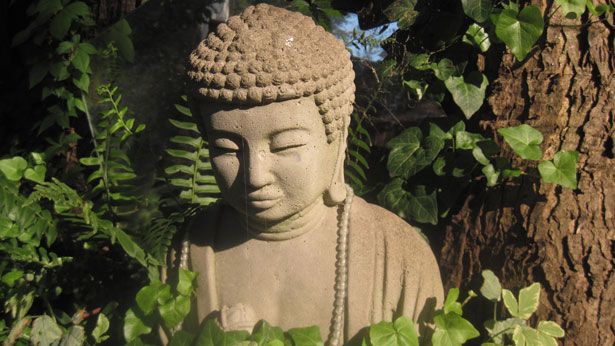What is the first limb of yoga according to Patanjali’s Yoga Sutras?
Yama is first limb of yoga and it is as important if not more important as the asana (physical postures).
“Practice of asanas without the backing of Yama and Niyama is mere acrobatics.” -B.K.S Iyengar
The Yamas: Ethical disciplines. The Yamas represent a series of “right living.”

The Yamas are comprised of five principles that Patanjali listed in his Yoga Sutras:
1. Ahimsa: Nonviolence. The yogi sees all beings in the Self and the Self in all beings and therefore opposes violence and loses all fear. The yogi is stern with himself when dealing with his own faults but gentle with the faults of others.
2. Satya: Truth. Truth is God and God is Truth. Satya presupposes perfect truthfulness is thought, word, and deed. When the mind bears malice towards none, it is filled with charity towards all. The man firmly established in truth gets the fruit of his actions without apparently doing anything. God the source of all truth, supplies his needs and looks after his welfare.
3. Asteya: Non-stealing. Goes past not only taking what belongs to someone else. The yogi should reduce his physical needs to the minimum, believing that if he gathers things he does not really need, he is a thief. While other men crave for wealth, power, fame or enjoyment, the yogi has one craving and that is to adore the Lord. He who obeys the commandment Thou Shalt Not Steal, becomes a trusted repository of all treasures.
4. Brachmacharya: Life of celibacy, religious study and self-restraint. It is the battery that sparks the torch of wisdom. Without experiencing human love and happiness it is not possible to know divine love.
5. Aparigraha: To be free from hoarding. The yogi should feel that the collection of things implies a lack of faith in God and in himself to provide for his future. The yogi trains his mind not to feel the loss or the lack of anything. Then everything he really needs will come to him by itself at the proper time. Keep the mind in a state of equilibrium. Develop the capacity to remain satisfied with whatever happens to you. To those who worship Him alone with single minded devotion,which are in harmony with Him every moment, He brings full security. He shall supply all their wants and shall protect them forever.
Descriptions are from Light on Yoga by BKS Iyengar.
How do you incorporate the Yamas into your daily practice on and off the mat?
